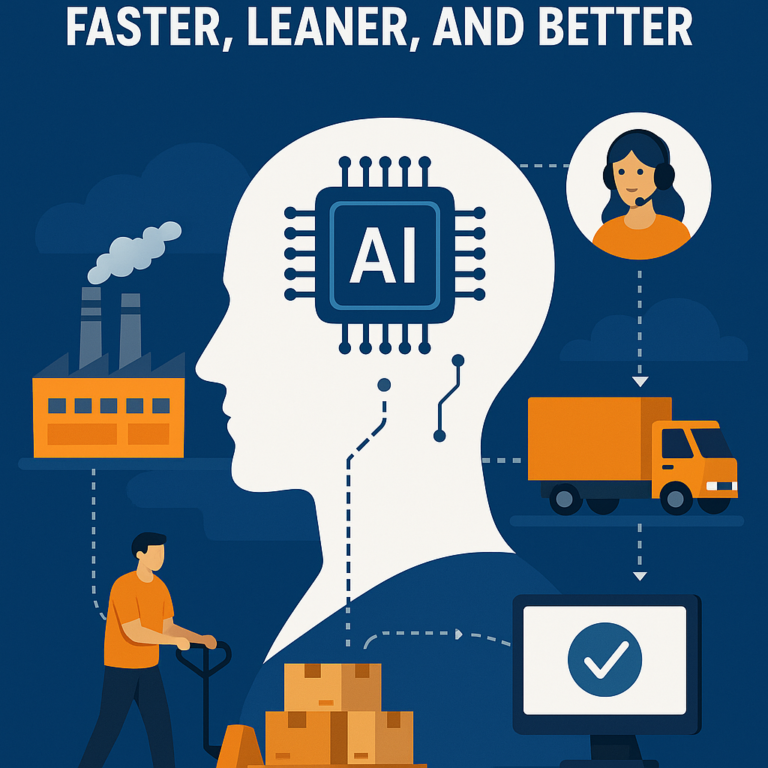In the current digital era, e-commerce revolves around offering customers a remarkable, customized experience that encourages them to return, rather than just selling goods digitally. Artificial intelligence (AI) is one of the main forces causing this evolution.
With tools and strategies that increase productivity, increase revenue, and enhance client satisfaction, artificial intelligence (AI) is revolutionizing the online business landscape. The article examines how AI is implemented in e-commerce and is transforming the sector.
How is Articlefical Intelligence Used in E-commerce?
Personalized Product Recommendation
AI-powered solutions that offer personalized product recommendations have the potential to greatly enhance the customer experience. Such systems can increase the likelihood of a sale by making recommendations for products based on an analysis of a customer’s past purchases and behavior. Customers find purchasing more relevant and interesting with this personalized method.
Fraud Detection and Prevention
For eCommerce companies, fraudulent transactions may be a big hassle. In real time, sophisticated artificial intelligence algorithms can detect suspicious activities and analyze buying patterns. eCommerce businesses can use machine learning to look for suspicious customer behavior and past purchases by scanning real-time online sales. Identity theft, fraudulent purchasing, and payment fraud are some of the most frequent scams that affect retailers online. Your eCommerce firm may save money and increase customer trust by lowering the risk of fraud.
Chatbots and Virtual Assistants
AI-powered chatbots are becoming common tools for customer support in e-commerce. In addition to assisting with product searches and offering immediate support, these virtual assistants also assist with the checkout procedure. They free up human employees to work on more complicated problems by managing numerous clients at once, offering 24/7 assistance.
Inventory Management
It can be difficult to manage inventory. However, AI systems improve inventory management by reducing mistakes and providing guidance for decision-making, which reduces expenses and guarantees that products are available to satisfy customer demand. By matching inventory levels to real demand patterns, AI-driven inventory optimization successfully lowers holding costs, prevents overstocking and stockouts, and promotes sustainable practices.
AI makes it possible for e-commerce to accurately estimate demand in addition to inventory management. This keeps the product available, improves customer happiness, and allows for more efficient stock-level management.
Voice and Visual Search Abilities
Online shopping is benefiting from new capabilities that AI is bringing with it as it develops. With the use of artificial intelligence (AI), voice and visual search capabilities are simplifying the shopping process by offering users hands-free operations along with appropriate product recommendations.
With voice search, customers can easily shop like they’re speaking to a real assistant by doing searches and making purchases with simple voice commands. Customers looking for quick and easy ways to shop without having to type or navigate menus are the ones that this technology primarily serves—mobile users.
However, buyers may now use pictures rather than words when searching for products due to visual search, which makes use of AI-powered image recognition technology. Users can rapidly locate comparable or identical things by only uploading a snapshot or taking a picture of an item they’re looking for with their camera.
Pricing Optimization
AI is able to continuously process fresh data and recognize whether there is a new trend or a rise in demand for a certain product or service by using machine learning algorithms. AI requires data to be trained; this includes information about previous campaigns and promotions, sales history, product descriptions, inventory information, corporate location, etc. What restrictions apply?
Generative AI
An essential component of any effective eCommerce strategy is content production. eCommerce companies can now automate and quicken content generation, increasing accuracy and efficiency while enhancing consumer experience, due to the development of AI technology. To assist online retailers in educating and convincing potential customers, this involves creating written or visual material such as product descriptions, product photos, blog articles, and social media posts. Improved customer experiences can be achieved by using AI algorithms to analyze product data and produce accurate and pertinent information.
Conclusion
When managing the intricacies of operations, artificial intelligence (AI) is playing a more and bigger role for eCommerce firms of all sizes. With AI technology developing at a rapid pace, it is obvious that its influence on the eCommerce sector will only increase, providing businesses with revolutionary new means of connecting with consumers and competing in the cutthroat market.
Do you want to use artificial intelligence to improve your e-commerce business? AveryBit is an e-commerce development company that uses artificial intelligence (AI) to create and deliver software and apps that are enhanced with AI capabilities. We guarantee a customized strategy that meets your specific business requirements by guiding you through the challenges of adopting AI. Speak with AveryBit right now for an e-commerce solution that looks to the future.














